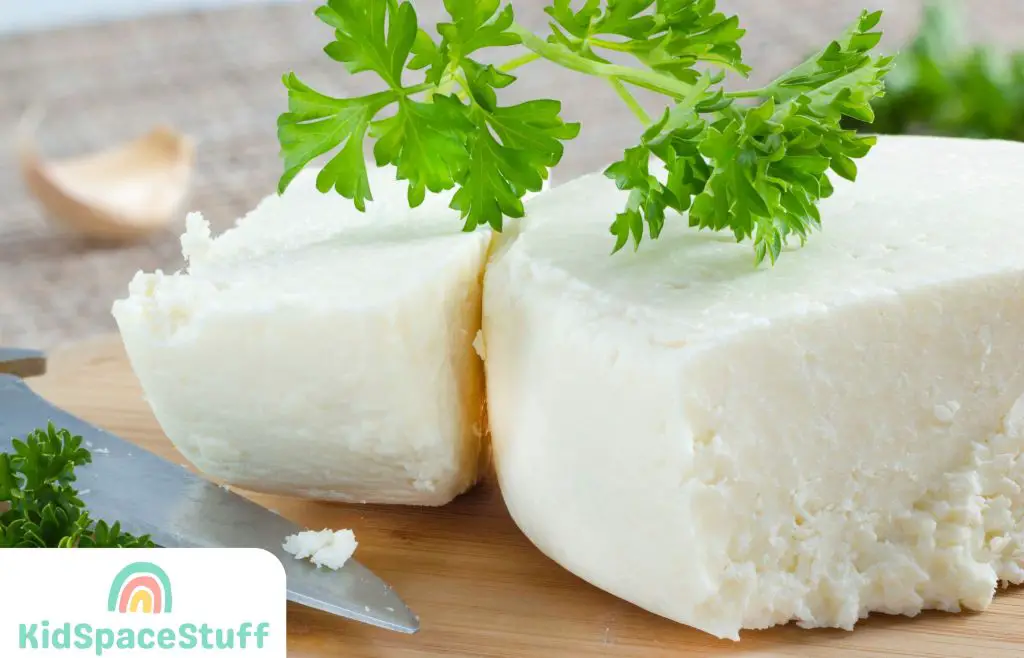Cotija cheese, rich and crumbly, can make any dish taste better, but when you’re pregnant, you look at everything on your plate even more closely. Is this popular Mexican cheese snack safe for pregnant women, or does it have secret dangers? There are as many different dos and don’ts for pregnant women as there are kinds of cheese.
In this article, we’ll figure out what’s so mysterious about Cotija cheese by looking at its safety profile and nutritional benefits for pregnant women trying to get through their complicated journey. Let’s dig in!
Can You Eat Cotija Cheese While Pregnant?

Yes, you can eat Cotija cheese while you’re pregnant, as long as it’s made with milk that has been processed.
Pasteurization is a process that kills germs that are bad for pregnant women. Always check the package to ensure it’s been pasteurized; if you need more time, talk to a doctor or nurse. Cheeses, including Cotija, are also high in salt, so it’s best to eat them in moderation.
What is Cotija Cheese?
Cotija cheese is a crumbly, hard Mexican cheese mainly made from cow’s milk. It is called Cotija, after a town in the Mexican state of Michoacán.
Cotija cheese is aged and has a strong, salty taste, which makes it perfect for grating or crumbling over dishes like tacos, salads, beans, and more. It has a similar feel to Parmesan cheese but has a taste that is all its own. People often call it the “Parmesan of Mexico“.
General Guidelines for Consuming Cheese During Pregnancy
When pregnant, you must be cautious about which cheeses you consume due to the risk of bacteria that can harm the baby. Here’s a simple guide:
- Avoid Soft Cheeses: Steer clear of soft, unpasteurized cheeses like brie, camembert, and blue-veined varieties, as they can harbor harmful bacteria like listeria.
- Choose Pasteurized: Always opt for cheeses made from pasteurized milk. Pasteurization is a process that kills harmful bacteria.
- Hard Cheeses are Safe: Cheeses like cheddar, parmesan, and Swiss are generally safe because their low moisture content makes them less likely to harbor bacteria.
- Cottage and Cream Cheese: These are also safe, provided they’re made from pasteurized milk.
- Cooked Cheeses: Heating cheese until steaming or melting can kill off harmful bacteria, making it safer to eat.
- Read Labels: Always check cheese labels for pasteurization information.
Benefits of Eating Cotija Cheese While Pregnant
Cotija cheese, often hailed as Mexico’s answer to Parmesan, isn’t just a delicious dish addition. For expecting mothers, it can also offer a range of benefits:
- Calcium Boost: Cotija cheese is a good source of calcium, essential for developing your baby’s bones and teeth.
- Protein Source: Protein aids in the growth of fetal tissue, including the brain. Cotija provides a decent amount of this vital nutrient.
- Rich in Phosphorus: This mineral works hand in hand with calcium to strengthen bones and teeth.
- Vitamin B12: Found in Cotija cheese, B12 supports the nervous system and aids in preventing specific congenital disabilities.
- Fats for Brain Development: The fats in cheese are beneficial for the developing brain and eyes of the fetus.
- Satiety: The protein and fats in Cotija cheese can help you feel full, potentially aiding in maintaining a healthy pregnancy weight.
Tips for Consuming Cotija Cheese Safely During Pregnancy
Cotija cheese offers delightful flavors, but when you’re expecting, safety comes first. Here’s how to enjoy this cheese without any worries:
Tip #1: Check Pasteurization
Always ensure that the Cotija cheese you’re purchasing is made from pasteurized milk, eliminating harmful bacteria.
Tip #2: Avoid Cross-Contamination
Store your Cotija cheese separately from raw meats or seafood to prevent cross-contamination.
Tip #3: Consume Freshly Opened Cheese
Once you’ve opened a packet of cheese, try to consume it within a few days to ensure its freshness.
Tip #4: Store Properly
To maintain quality, keep Cotija cheese in the refrigerator, well-wrapped, or in an airtight container.
Tip #5: Avoid Moldy Portions
If you see any mold or off-putting smells, it’s best to discard that portion or the entire cheese if unsure.
Tip #6: Limit Intake
While Cotija cheese is nutritious, it’s also high in salt. It’s good to consume it in moderation to avoid excessive sodium intake.
Tip #7: Consult with a Nutritionist
If in doubt, always check with a healthcare professional or nutritionist about including Cotija cheese in your pregnancy diet.
FAQs
Is all Cotija cheese pasteurized?
Not necessarily. Always check the label or ask the producer.
How can I tell if my cheese is contaminated with Listeria?
It’s difficult to tell just by looking or tasting. Always ensure you’re buying from a reputable source and that the cheese is stored properly.
Are there any other cheeses I should avoid during pregnancy?
Yes, certain soft cheeses, especially those made from unpasteurized milk, should be avoided. Examples include Brie, Camembert, and blue-veined cheeses.
Here’s a great video that shows you how to make cotija cheese at home.
Final Thoughts
You can eat Cotija cheese if it is made from milk that has been processed.
This Mexican treat contains good nutrients for pregnant women, like calcium and vitamin B12. But like all foods during pregnancy, it’s essential to eat it in moderation, pay attention to how much salt it has, and always put safety first by storing and treating it the right way. Cotija cheese can be a tasty and healthy part of a pregnant woman’s diet if these things are considered.
KidSpaceStuff is a site dedicated to helping parents find the best interior design, activities, and inspiration for their kids.